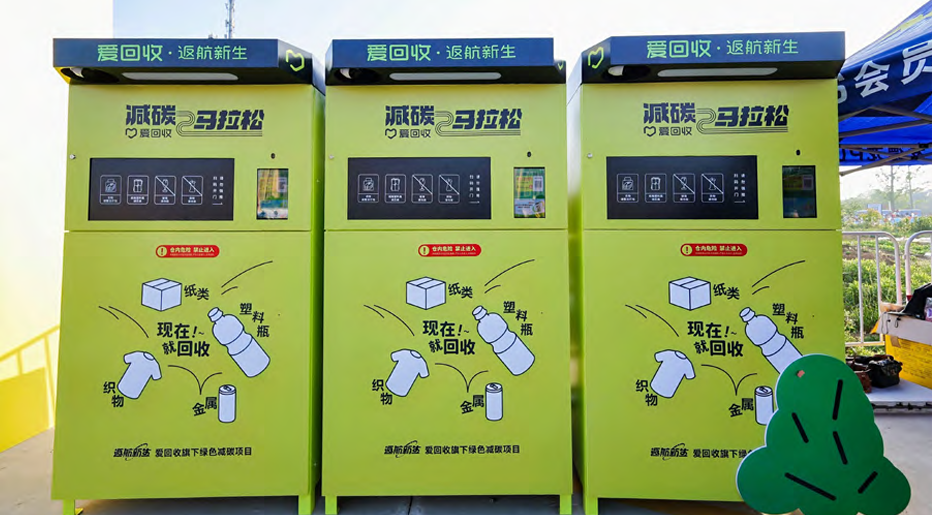
A tech-enabled recycling revolution
Started in 2019, the LOVERE project is part of China’s Internet Plus Recycling strategy, which leverages digital technology to develop new collection models for recyclables—integrating recovery, collection, sorting, and distribution.
LOVERE’s distinctive lime-green smart bins are now a familiar sight to residents living in parts of Chengdu and Xi’an in China, and their innovative technology is helping users separate their trash more effectively.
The number of bins installed in the two cities rose to 3,007 in 2024, representing a major step forward in the company’s goal to increase recycling rates from 15 to 35 per cent by 2030 in these cities.

The bins do more than just offer a receptacle for recyclables. Shanghai-based LOVERE has pioneered an innovative plastics recycling system that incentivises residents by providing micropayments directly into their WeChat account for their recycling efforts—the popular Chinese social media and payments app—in reward for their recycling efforts.
Started in 2019, the LOVERE project is part of China’s Internet Plus Recycling strategy, which leverages digital technology to develop new collection models for recyclables—integrating recovery, collection, sorting, and distribution. At the core of the system are AI-powered smart cameras that classify each deposited item based on its weight and shape to determine its recyclability. If a resident makes an incorrect deposit, LOVERE can even follow up via their WeChat account to explain which items the system can accept. This direct feedback loop has proven effective, with approximately 90 per cent of materials collected being properly recycled.
This technology-driven approach to recycling education and promotion is yielding strong results for LOVERE, which processes over 679,000 tonnes of household recyclables each year in China.
By the first quarter of 2024, the recycling project has started to transition toward f inancial sustainability. The target of installing 3,000 smart bins across Chengdu and Xi’an was achieved despite some challenging conditions, including the impact of Covid-19 in 2022 and urban renovation projects in downtown Chengdu.
A major milestone on the plastics processing front was the launch of LOVERE’s new sorting centre in Xi’an, complementing its Chengdu facility, which began operations in late 2023. These centres are central to LOVERE’s growing capacity, allowing it to process more recyclable materials as operations expand into additional districts.
The sorting centres serve as sophisticated waste management hubs where collected materials are separated into as many as 80 individual streams before being sold to recycling companies.
While the Alliance-funded project focused on Chengdu and Xi’an, LOVERE’s innovative business model has already scaled nationwide—now operating in approximately 38 cities with a network of around 31,000 intelligent recycling machines in Mainland China.
LOVERE continues to work toward its ultimate target to recycle 50,000 tonnes of plastic by 2030. The completion of the business-to-consumer infrastructure in 2024 sets the stage for ramping up the business-to-business model, which will engage office buildings, hotels, and other commercial partners
Stay in the loop
Subscribe to our newsletter for the latest news and updates from the Alliance







